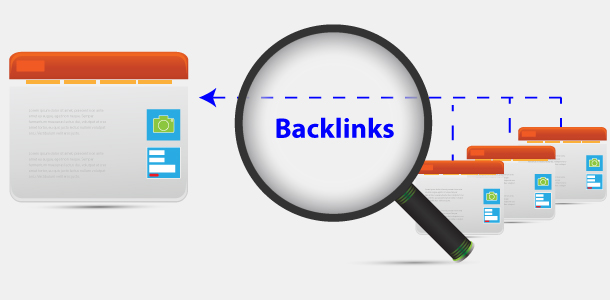As student enrollment dynamics evolve, higher education institutions need all the help they can get to attract prospective students. One of the most effective ways to achieve this is through Search Engine Optimization (SEO). A well-executed SEO strategy can increase your institution’s online visibility, attract the right applicants, and ultimately drive more student inquiries and enrollments.
Did you know that over 33% of all website traffic comes from organic search? If your institution isn’t using SEO to optimize its web pages, you’re potentially losing valuable traffic to your competitors!
In this guide, we’ll delve into why SEO for Higher Education is essential for universities, colleges, and trade schools, offering actionable tips to improve rankings, structure your content effectively, and implement technical SEO strategies that enhance the overall user experience. We’ll also feature a real-world case study of an institution that successfully boosted its online presence using SEO.
Key Takeaways:
- SEO is Crucial for Recruitment: Over 33% of website traffic is generated through organic search, making SEO essential for student recruitment.
- Targeted Keyword Research: Focus on long-tail and program-specific keywords to attract prospective students.
- Local SEO: Optimizing Google Business Profiles and creating location-specific content helps rank locally and engage regional students.
- Real-World Success: A real-life case study demonstrated a 75% increase in campus page traffic and an 18% boost in student inquiries through local SEO improvements.
Why SEO For Higher Education Matters
SEO is a fundamental aspect of increasing your university’s visibility and reputation online. In an age where prospective students predominantly rely on search engines to gather information, universities and colleges must ensure their websites rank high on search engine results pages (SERPs). By incorporating relevant keywords, optimizing for mobile, and ensuring user-friendly experiences, higher education institutions can stay competitive in the crowded education space.
Key Insight: Search volume for college-related keywords is vast. For example, searches like “top universities in New York” or “best engineering programs” are highly competitive. Institutions that don’t optimize their content for these searches are missing out on critical traffic.
What Makes Higher Education SEO Unique?
Higher education SEO differs from standard SEO due to the distinct challenges institutions face, including:
- Diverse Target Audiences: Universities, community colleges, and trade schools target different student demographics (local, national, and international).
- Seasonal Trends: Enrollment periods, application deadlines, and other seasonal factors significantly impact search trends.
- Complex Website Structures: University websites typically have thousands of pages. Effective SEO requires strategic content organization, robust site architecture, and optimized internal linking.
SEO Best Practices for Higher Education
1. Find the Right Keywords for Your Institution’s Goals

Start by identifying keywords that match your institution’s offerings. For example, terms like “computer science degree” or “online MBA programs” attract prospective students. Utilize tools like Ubersuggest, Google Keyword Planner, and Ahrefs to identify relevant terms.
Focus on:
- Program-Specific Keywords: Tailor content for specific academic programs.
- Location-Based Keywords: Optimize for local searches, like “universities in [city]” or “best colleges near me.”
2. Create Effective Higher Education Content
Content creation is at the heart of SEO. High-quality content boosts authority and builds trust. Include:
- Long-Form Guides: Provide detailed information about programs, admissions, and student life.
- Faculty Research Highlights: Showcase your institution’s expertise.
- Student Success Stories: Share testimonials and stories from alumni to create emotional connections with prospective students.
Engage your audience with multimedia like videos, infographics, and virtual tours. These formats increase user interaction and dwell time, which can positively impact SEO.
3. Focus on Local SEO
Local SEO is essential for colleges looking to attract students from specific regions. By optimizing your Google Business Profile and incorporating local keywords into your content, you can increase your chances of ranking in local search results. Create dedicated pages for each campus and specific cities or states to capture local search traffic.
Tips for Local SEO:
- Claim and regularly update your Google Business Profile.
- Encourage alumni and students to leave positive reviews.
- Structure content to reflect local needs, such as creating pages that address regional student resources or local partnerships.
4. Technical SEO Best Practices

Technical SEO ensures that search engines can crawl and index your website efficiently, contributing to better rankings. Here’s how to improve your website’s technical SEO:
- Mobile Optimization: A majority of search traffic comes from mobile devices.
- Page Speed: Make sure your website loads quickly to avoid losing visitors.
- Structured Data: Implement schema markup to enhance your visibility in SERPs.
- Clear Navigation: Make it easy for prospective students to find the information they need.
How to Measure Your Institution’s SEO Performance
To measure SEO success, tracking metrics like organic traffic, keyword rankings, and conversion rates is essential. Tools like Ubersuggest provide insights into where your site currently stands and how well your SEO efforts are working.
Key Metrics to Track:
- CTR (Click-Through Rate): Shows how compelling your search results are.
- Conversion Rate: Measures how many clicks convert to inquiries or enrollments.
- ROAS (Return on Ad Spend): Determines how effective your paid campaigns are in driving traffic and conversions.
Increase Authority Through Backlinking

Backlinks from authoritative websites increase your site’s credibility and improve search rankings. Universities can build backlinks by collaborating with industry leaders, publishing research papers, and contributing to education-focused sites. Additionally, alumni pages, government sources, and news outlets are excellent sources of authoritative backlinks.
A Real-Life Higher Education SEO Case Study
Let’s explore a case study of Universal Technical Institute (UTI), which saw a dramatic improvement in organic traffic through local SEO.
The Problem: In 2023, UTI’s organic rankings dropped due to Google’s new focus on local “map-pack” results, pushing national rankings lower.
The Solution: We implemented a multi-pronged strategy:
- Conducted a content audit and optimized existing pages.
- Created more than 200 local pages targeting nearby cities.
- Claimed Google Business Profiles for each campus to update location information.
The Results: Within three months, UTI saw:
- A 75% increase in traffic to campus-specific pages.
- 18% boost in student inquiries from organic sources.
- 411% increase in traffic for new program expansions.
This case highlights how local SEO can dramatically improve visibility and drive engagement for higher education institutions.
Read Also :- How to Sell More on Amazon, Flipkart & Meesho with SEO
How to Use Google Ads for Your Healthcare or Clinic Business
Conclusion
In today’s competitive higher education landscape, SEO is no longer optional. It’s a necessity for universities and colleges looking to attract prospective students. By focusing on strategic keyword research, local SEO, high-quality content, and strong technical SEO, your institution can improve online visibility, enhance user engagement, and increase enrollment. Implementing these best practices will set your university up for SEO success and help it thrive in the digital era.
FAQ’s
Q1.What is SEO for higher education?
SEO for higher education helps colleges and universities rank higher on search engines to attract more student applicants.
Q2.Why is SEO important for universities?
SEO increases online visibility, drives organic traffic, and improves student recruitment through better SERP rankings.
Q3.How can colleges improve local SEO?
Colleges can enhance local SEO by optimizing their Google Business Profile and using city-specific keywords on their pages.
Q4.What types of content help with SEO for colleges?
Program pages, student testimonials, blogs, and local landing pages are effective for driving search traffic.
Q5.How do I track SEO performance for my institution?
Use tools like Ubersuggest or Google Analytics to monitor rankings, organic traffic, keyword growth, and conversion rates.








